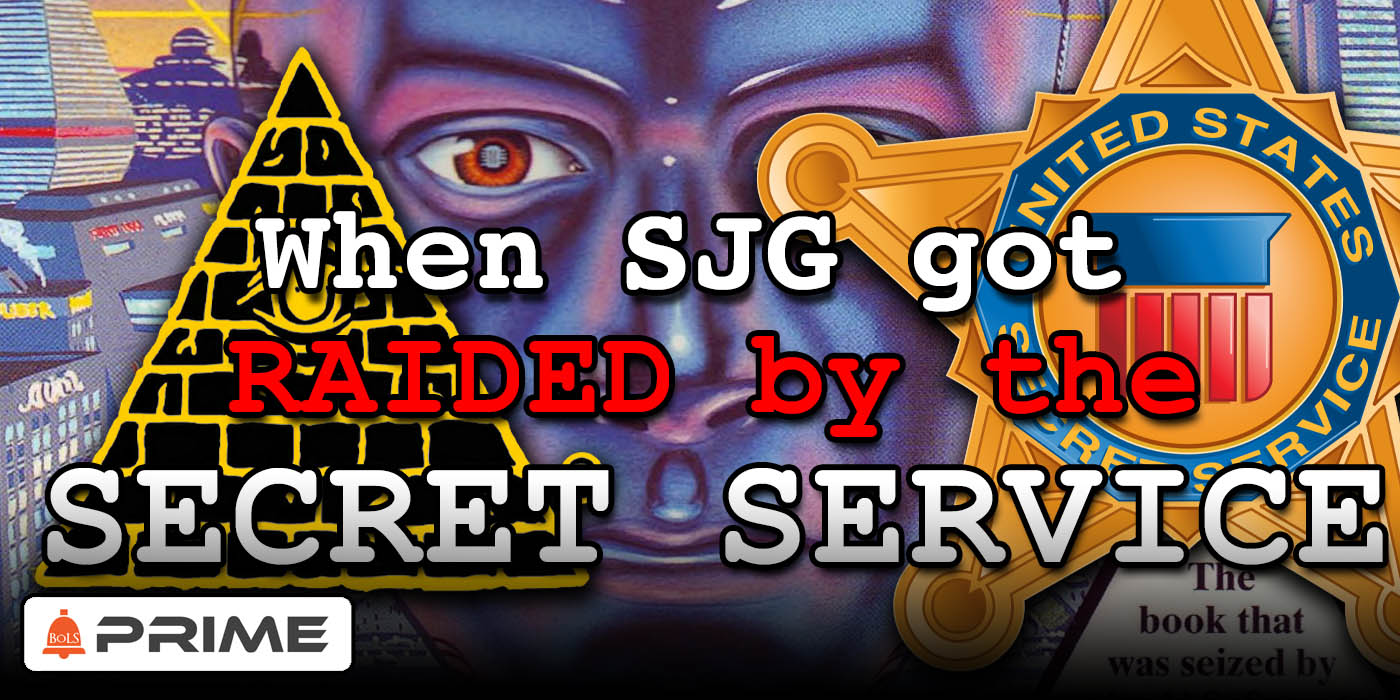Have you ever written a game so good that the Secret Service raids your offices, seizes your computers... even your printers? Steve Jackson Games has.
One quiet spring morning in Austin, TX, armed Secret Service Agents, accompanied by a "civilian expert" from Bell South, descended upon what they believed to be a hotbed of hackers and computer piracy. A place where digital secrets were being traded on the open market.
What they would find was a computer full of references to a secret organization known only as the Illuminati, and a recipe for computer crimes and credit fraud using advanced technology the Secret Service had never heard of it. So dangerous did this threat seem that the agents raiding the hacker hideout seized:
Four computers
An assortment of loose hard disks
Various electronic hardware
And of course, two laser printers
Because you know, laser printers are dangerous machines. Even to this day, some of them are known to have security vulnerabilities that allow a careful programmer to get them to run programs they were never designed to run.
Of course, there was just one small problem with the fruits of the raid. The computers in question belonged not to hackers, but...

